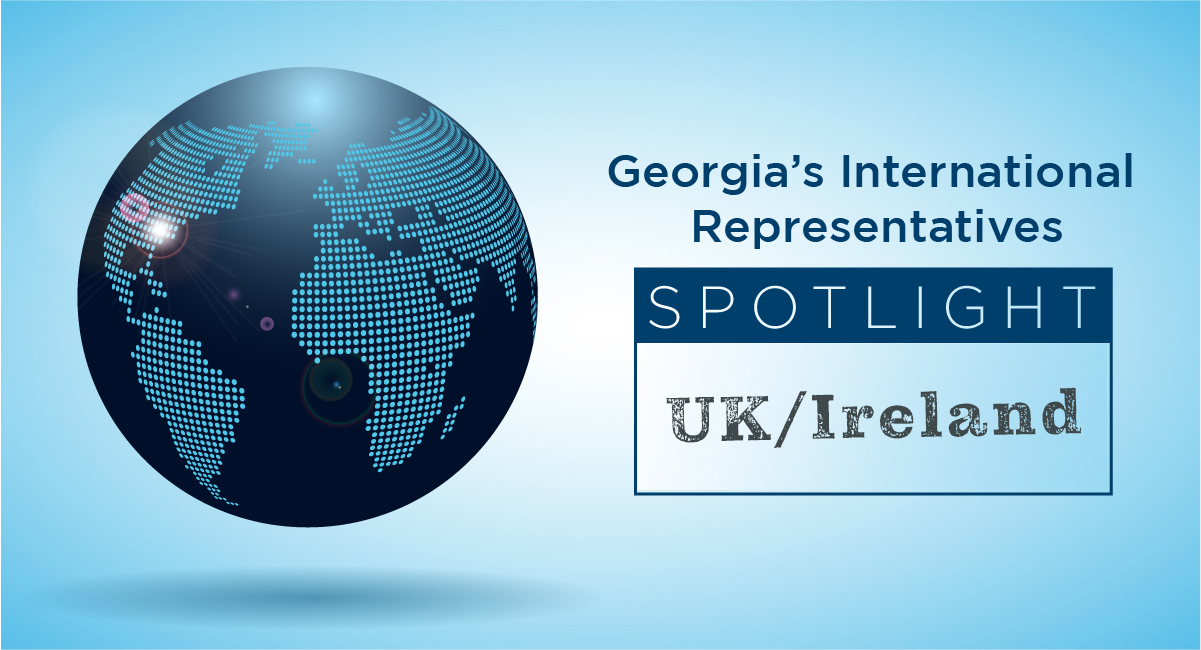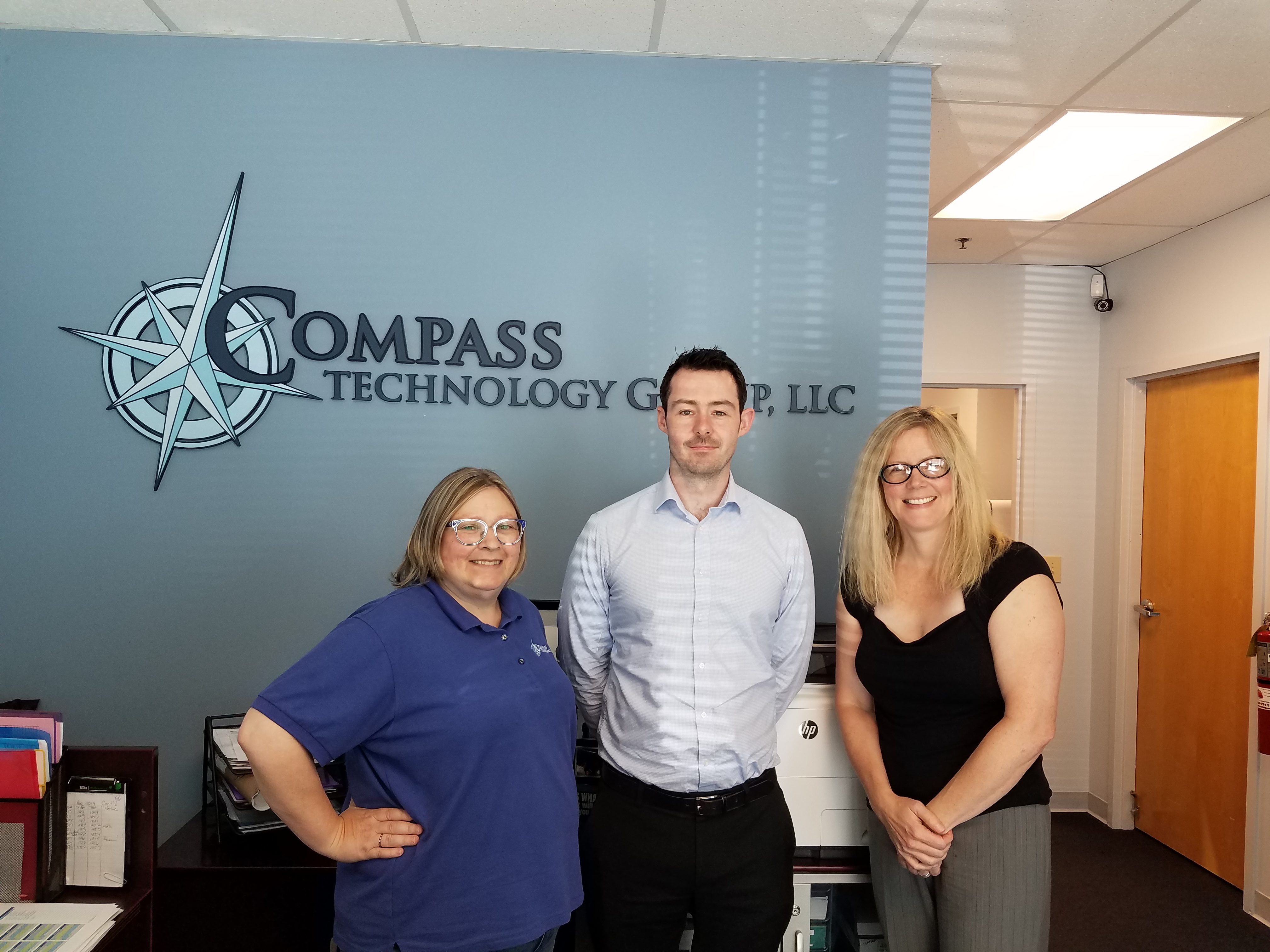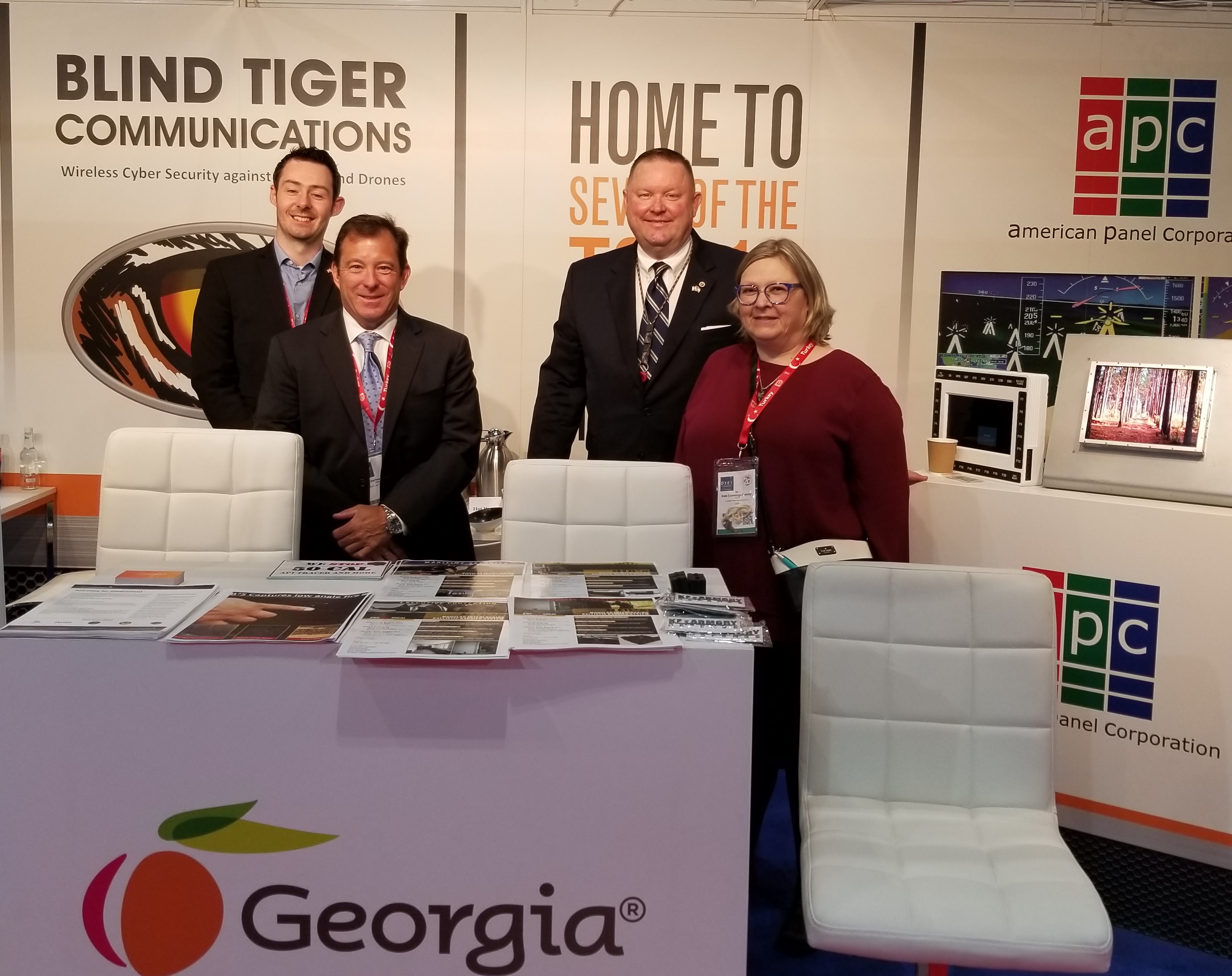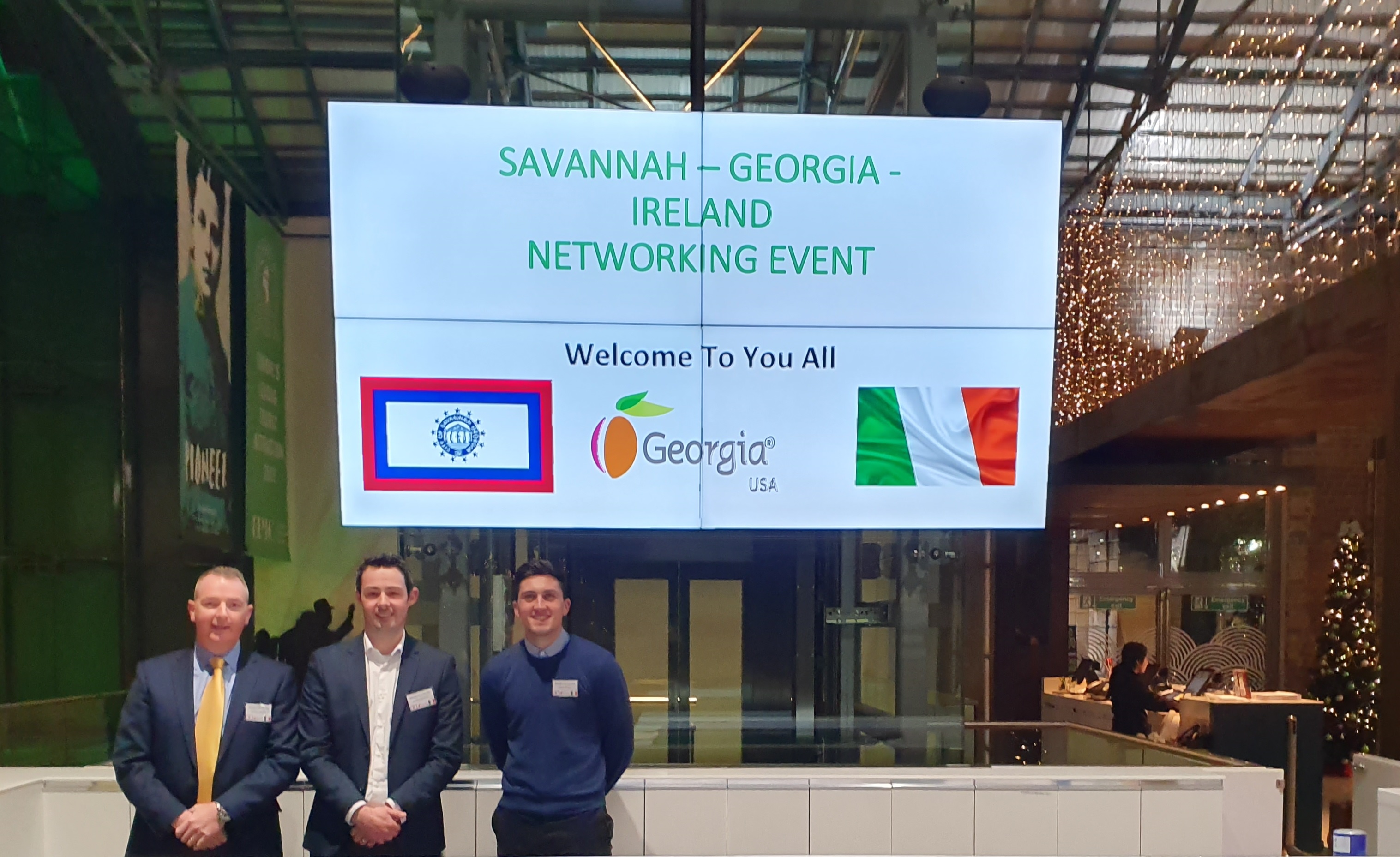International Representative Spotlight: UK/Ireland

International Representative Spotlight: UK/Ireland

Interviewee Name & Title:
Connor Griffiths, Trade Representative
The U.K. is the 7th largest export partner for the State of Georgia.
Where is the office based: We are based in central London.
Who are the Team Members: We have a knowledge base of about 30-40 research analysts.
How did you enter the world of exporting/trade and how long have you been working in this field?
Conor: I’ve been working in International Sales for over 10 years. My background has come from helping Small and Medium Enterprises (SMEs) based in Ireland and the UK grow internationally, as well as business development roles. That background has given me a lot of experience in the challenges faced by SMEs when trying to grow internationally, so when I work with a Georgia based SME, I have some experience on the pain points that they’re feeling, how to get out into the market, and translate that into the nuances of different markets.
I’ve been helping North American companies export into the European market for over 7 years now. I’ve personally worked with about 12 US states and a number of provinces in Canada, which has given me a strong understanding of what North American companies experience when trying to bring their products or services into the European market.
What typical services do you provide for Georgia exporters interested in your market?
C: As trade representatives for the State of Georgia, our team helps Georgia-based companies access, enter, and grow into the markets we cover – which are the UK, Ireland and Benelux region. Typically, we undertake market research activities to identify opportunities, barriers to entry, how to overcome those barriers, and then plan out a recommended route to market, be it through a distributor, partner, channel partner, going directly to clients, or working with consultancies. We take that research and move through the market intelligence stage to lead generation, where identify who the main players actually are, be it channel partners and distributors, or those potential clients and customers. We draw up brief profiles, and then action that with the final stage of the lead generation. What this looks like is the team based here on the ground in the market uses our network, makes connections, builds relationships and helps to grow business for Georgia-based companies in the markets we cover.
What do you consider the biggest challenge(s) to exporters interested in your market? What about the greatest opportunity?
C: For me, there isn’t an enormous barrier compared to other international markets, but companies should consider the challenges coming from Brexit. This has effectively made the UK market a little bit different than the wider EU, and in general, the European landscape, for business. Some American companies, not necessarily just Georgia companies, still look at the UK as “it’s just part of the EU, it’s all the same,” when obviously that’s not the case now. I had a case not so long ago where a current exporter from Georgia had to change their regulatory packaging CE mark to the UKCA mark. These are the types of challenges that face both new exporters and experienced exporters. However, it’s not something that should stop a company from trying to grow into the UK market.
In terms of opportunities, it’s an obvious thing to say, but the UK is the largest English-speaking market in the European continent. They love US goods, they love Americans, we work with Americans all the time. There are US products everywhere you go here, so it’s a great steppingstone into the European market. As Canada is generally a first step for US companies to export, the UK is a natural next step outside of North America.
Are there any major trade shows in your market that GA exporters should be aware of?
C: The UK has an infinite amount of trade shows that Georgia companies can attend. There’s lots of big trade shows and smaller trade shows that have their own charm and opportunities. When you think about what makes a good trade show, it’s driven by the strength of industry sectors in those countries. Luckily for Georgia, the strengths and sectors in the UK actually align quite well with the US and Georgia. Some of the UK’s strongest sectors are food and drink, medical, healthcare, IT, fintech, and professional services. I’d specifically like to point to professional services, as the UK is heavily reliant on legal, finance, marketing and business services. As a result, these all produce great trade shows.
Defense & Security International (DSEI) is happening in September 2021, and we were due to attend, but because of COVID-19 we had to pull back. Our team is helping some of the companies virtually instead. We did attend DSEI back in 2019 with Georgia companies, which was a great experience. Others that stand out are the International Food & Drink Event and London Tech Week, which is an absolutely brilliant event for any tech-focused companies.
Our team doesn’t just represent Georgia in the UK. We cover Ireland, and the Benelux nations as well. Within the Benelux is the Netherlands, where we have a show called Money20/20, which most fintech companies would be aware of. We will bring a delegation from Georgia to that show in September 2021.

What is the trade relationship between the US and your market like?
C: UK businesses are used to doing business with US companies, and it’s often expected that a US company will want to do business with UK companies and vice versa. My question to a Georgia business thinking about going global and specifically in the UK market is this: There are so many US companies based here or exporting here—why aren’t you? If you break the EU bloc down into specific countries, the US stands out as the largest trading partner of the UK. That really hones in on that special relationship leaders of both countries like to talk about.
Are there any trends, be it in policy, culture, or consumption habits that exporters should be aware of when considering the market?
C: Absolutely. A trend that really stands out for me is in the food industry and likely aligns with what you’re seeing in the US, which is great for Georgia exporters. We see a lot of vegetarian, health-conscious, green-conscious consumers, and this feeds right back up into the supply chain, so many retailers are interested in new products that match these changing consumer preferences. Many food and drink companies are starting to change their behavior as well. For example, Sainsbury’s, the 3rd largest retailer in the UK, is experiencing a demand from the consumers for more green-based products and plan to half their plastic packaging by 2025. These are the types of initiatives we’re seeing as a result of consumer attitudes. Luckily, the US is also experiencing these cultural shifts, so it shouldn’t be too much of a shock for Georgia companies.
I want to also point out that there are cultural differences between the US and the UK that companies tend to overlook. The UK is generally a bit more formal, and this is something Georgia companies should consider. This also applies to packaging, as packaging tends to be less loud than it is in the US. When I’m in the US, I tend to think things shout at me, while back home they wave politely in the corner.
What advice do you have for companies looking to start exporting to your market?
C: For me it’s about doing your homework. You can’t expect to have the same success in a foreign market that you’ve had in your home market without knowing the foreign market. You need to understand all the intricacies. You need to know who your competitors are, who are your clients, and what is the best route to market. That is absolutely critical.
When we talk about doing your homework, it’s not just about understanding new regulatory frameworks. It’s also about who you know: where is my network and who can I lean on to help make this an easier process for me? There are so many people, and so many Georgians, in the UK and they’re usually quite willing to speak to you and are willing to connect. Establishing these types of contacts can help break down barriers and make entry into the UK a little easier.
The other thing to keep in mind is timing. There’s a perception from some of the people I speak to in the US that “It’s only the UK, they speak English, it’ll be fine, this is easy!” Companies need to understand that patience and timing matters. A good example of this would be if you have a food product or a drink you want to bring to the UK. Typically, buyers and procurers will purchase certain products at certain times of the year. If you’re trying to target at the wrong time, you’re just wasting your time and the buyer’s time. That all feeds into doing your homework and knowing when to strike when the iron is hot. Luckily, the Georgia Department of Economic Development (GDEcD) and the UK team can really help Georgia companies answer those questions and better understand the market by providing customized market intelligence reports and introductions to key contacts.
Tell us about a memorable time when you were able to help a Georgia company avoid or overcome a major pitfall in your market? What was the situation and what do you want other companies to learn from this?
C: To date, I haven’t seen many pitfalls from the Georgia companies I’ve worked with, but one of the things we do when we first speak to Georgia companies is advise them on the market opportunity and the types of companies you should speak to. When conducting B2B matchmaking, we provide the Georgia company with a brief profile with details on what the company does, the specific opportunity, the conversations that we’ve had to date, and any other details to help them prepare for meetings and set them up for success.
I can’t stress enough the importance of preparation and understanding your customer. I’ve seen companies learn this lesson firsthand. Several years ago, I was working with a US company who traveled to the UK to meet with the commercial director of a well-known global healthcare company. I knew the company would be quite formal, and I shared this with my client beforehand and instructed him to be prepared, be direct, know your stuff, and sell hard. When my client pulled up in a pair of shorts and t-shirt I could only laugh. It made the first part of the meeting very difficult, but the client pulled off an amazing feat and turned it around. Ultimately, it’s those types of pitfalls that we try to avoid.

What has been your biggest export achievement?
C: We recently worked with Hydro Dynamics who manufactures cavitation equipment, which uses ultrasound mechanics to improve flavor extraction. We were specifically targeting the brewing industry, as the company wanted to grow in that sector. Obviously, the UK is very attractive because there’s thousands of small brewers. One of the selling points of Hydro Dynamics is that they can significantly increase the yield from hops and the flavor, making the actual brewing process cheaper, which improves the return on investment for the brewer.
We did a project with the company to identify brewers in the UK that fit their key target—not too big, not too small. We provided some target lists initially and Hydro Dynamics approved the companies they wanted us to target.
What Hydro Dynamics wanted to get from this project was a reference site they could use to point other brewers in the UK to and use as a successful case study and marketing tool. So we put them in front of a number of different brewers and eventually introduced them to Purity Brewing, who ended up being a great fit due to their strong focus on green manufacturing processes. This worked perfectly for a unit like Hydro Dynamics which is all about maximizing the flavor extracted from hops and the amount of ingredients being used.
Initially, Purity used the product as a trial but has now purchased and installed the Hydro Dynamics unit permanently. I’m proud to say that Hydro Dynamics is now exporting to the UK officially through the work of GDEcD and my team in the UK.
What made the most impression on you when you visited Georgia?
C: Honestly, the people. I was genuinely taken aback by the friendly nature and warm welcome, not just from the people at GDEcD and the other international reps, but the people of Atlanta and those I met along the way in Savannah and Augusta. It was really a highlight from my experience in Georgia.
Beyond the personal interactions, I did see some sightseeing and thoroughly enjoyed some of Atlanta’s flagship attractions! I went and saw the World of Coca-Cola Museum, which was great. I also really enjoyed touring the Civil Rights Museum. I can’t wait to get back and explore more!
What do you enjoy most about representing Georgia in the UK?
C: I think the big bonus of working with Georgia is that the companies I’ve worked with are so professional and really know their stuff. Georgia is not the #1 state for business for no reason. The Georgia SMEs I speak to are well informed, and many, if not all of them, understand what’s ahead of them when they go to export to the UK. They are happy to take our advice and guidance on getting to the market, but more importantly they are willing to put the time in and they know what they don’t know. That makes my job a lot easier, but it also helps them get to the market a lot easier.
What do you think would most surprise Georgians to learn of the UK market?
C: I think what’s probably most surprising is the number of Georgians actually living in the UK and the level of help and connections available in the market. When I visited Savannah during my visit to Georgia, we went to the Savannah World Trade Center. I remember sitting in one of the boardrooms and on the wall, there were clocks for several international locations. One of the clocks was for Wexford, which is a relatively small county in Ireland. I asked why there was a clock for Wexford, and they said they had a sister-city relationship with the locals in Wexford—which I didn’t know about! It’s always fun to discover these types of connections that make going global feel a little more local. I imagine most companies in Georgia would find it surprising the amount of people ready and willing to help them grow and do business in the UK, Ireland and the Benelux countries.
###
Are you a Georgia business looking for help growing your international sales? Find out how Georgia’s International Trade Team can help at www.Georgia.org/Trade.
